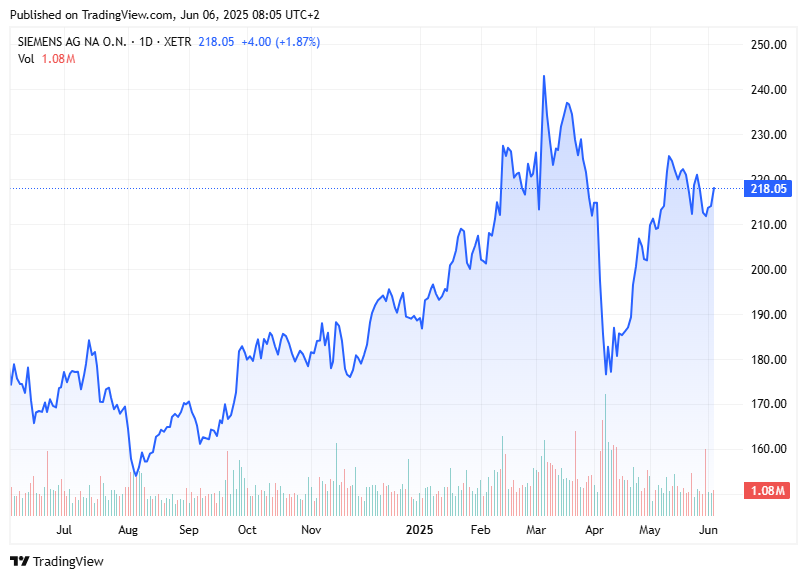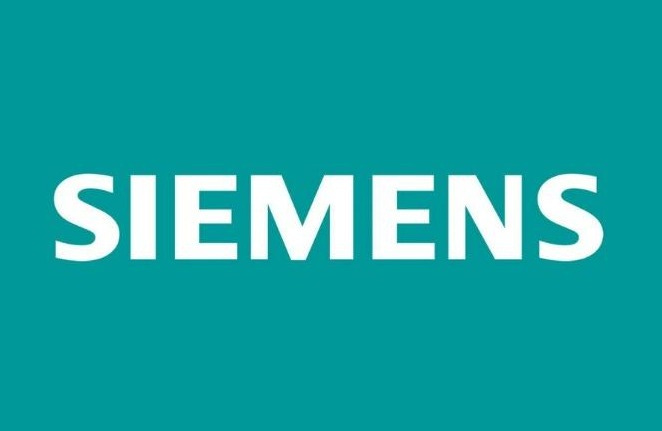These 2 Stocks Could Define the Future of Healthcare and Industry. But Which One Should You Own?
Philips vs Siemens: the battle of Europe’s tech titans
This week we’re shifting gears into the European industrial and healthcare space to compare two iconic players: Siemens and Philips. While both companies are deeply rooted in innovation and technology, they take distinct approaches in addressing global industrial automation and healthcare needs. Let’s dive in.
Industry Overview
In 2025, the industrial and healthcare technology sectors are navigating a complex but opportunity-rich environment. On the industrial side, global manufacturing is undergoing a major transformation driven by digitalization, smart infrastructure and automation. Demand for energy-efficient and intelligent systems is accelerating as companies push toward sustainability goals and net-zero targets. In healthcare, aging populations, chronic disease prevalence and post-pandemic system modernization are fueling demand for advanced medical technologies. AI, robotics and connected health platforms are reshaping care delivery. Geopolitical tensions, inflation and regulatory hurdles remain challenges but innovation and long-term demand fundamentals continue to support growth across both sectors.
So, how do Siemens and Philips fare amidst these dynamics?
Siemens AG (ETR: SIE)
Founded in 1847 and headquartered in Munich, Siemens is a global leader in industrial automation, electrification, smart infrastructure and healthcare technologies through its majority stake in Siemens Healthineers. The company is structured into four core business units: Digital Industries, Smart Infrastructure, Mobility and Siemens Financial Services. Siemens has carved out a niche as a digital transformation powerhouse, enabling factories and infrastructure to become more connected, intelligent and efficient.
A major competitive advantage for Siemens is its integration of hardware and software, especially through its industrial IoT platform, Siemens Xcelerator. The company's emphasis on sustainability is also significant, as it aligns its products and operations with decarbonization trends and climate goals worldwide.
Financially, Siemens remains resilient. The company reported solid results for Q2 FY2025 with €21.2 billion in revenue and a 14.6% profit margin in its industrial business. Siemens continues to focus on high-margin segments, strategic acquisitions and geographic diversification to mitigate macro risks.
Recent stock performance:
As of May 29, 2025, Siemens (SIE.DE) closed at €212.60, reflecting a 2.7% decline from the previous session. The stock has been volatile throughout 2025, influenced by global economic pressures, interest rate expectations and mixed signals from industrial output data. Year-to-date, Siemens has shown modest gains, supported by strong earnings and consistent cash flow generation. Its diversified operations and stable order backlog continue to attract institutional investors. Despite short-term macro uncertainty, analysts remain optimistic due to Siemens' leadership in automation and digital industries, as well as the momentum from Siemens Healthineers, which continues to be a strong growth contributor.
3 reasons to consider Siemens:
Industry Leader: Siemens dominates the industrial automation space, with deep integration of AI, IoT and cloud technologies.
Solid Margins and Growth: Siemens reported strong Q2 FY2025 numbers, driven by its high-margin Digital Industries segment.
Sustainability Positioning: Siemens is a major player in green infrastructure and decarbonization, aligning with future-forward investment themes.
Koninklijke Philips N.V. (AMS: PHIA)
Founded in 1891 and headquartered in Amsterdam, Philips has evolved from a diversified electronics conglomerate into a focused health technology leader. The company concentrates on diagnostic imaging, patient monitoring and connected care solutions that improve clinical and home health outcomes. With operations in over 100 countries, Philips' purpose-driven strategy emphasizes innovation that enhances patient outcomes and reduces healthcare system costs.
Philips has restructured significantly in recent years, exiting non-core businesses and sharpening its focus on medical technology. Its innovation pipeline includes AI-powered ultrasound, remote care solutions and cloud-enabled imaging platforms. While Philips has faced challenges, particularly related to past product recalls in its sleep and respiratory care unit, it has taken substantial steps toward operational recovery and rebuilding trust.
Recent stock performance:
As of May 29, 2025, Philips (PHIA.AS) closed at €22.96, down slightly from the previous day’s €23.01. The stock has struggled to gain significant upward momentum this year, impacted by lingering reputational and legal challenges from prior product recalls. Nevertheless, improved quarterly results, including higher EBITA margins and ongoing productivity gains, have helped stabilize investor sentiment. Philips' focus on streamlining operations and cost-cutting is starting to show in financial performance, and its commitment to innovation in AI-driven healthcare is resonating with long-term investors. Although the recovery is gradual, analysts note a clearer path to growth and margin expansion through 2025.
3 reasons to consider Philips:
Focused Healthcare Strategy: Philips is now fully aligned with healthcare technology, offering scalable platforms and services.
Operational Turnaround: The company is on a path to improved profitability and has made progress in restoring investor confidence.
Digital Health Innovation: Philips is at the forefront of AI-powered imaging, diagnostics and connected care solutions.
So… which stock would YOU invest in?
Would you choose Siemens, with its industrial strength, digital innovation and sustainability momentum?
Or do you prefer Philips, with its focused healthcare pivot and renewed financial discipline?
Let me know in the comments. I want to hear how you think through this choice.
SPOILER ALERT:
Here’s my personal take on the two stocks:
While both companies are strategically positioned, Siemens currently presents the stronger investment case. Its leadership in automation, smart infrastructure and industrial software provides exposure to structural growth trends like AI, electrification and digital transformation. Siemens Healthineers also adds depth through healthcare diversification.
Philips, though making solid progress, remains in a recovery phase. Its healthcare technology portfolio is promising but legacy issues and slower momentum make it a slightly riskier play in the near term.
Therefore, based on current financials and market positioning, Siemens (SIE) appears to be the better stock to own right now. But that’s just my opinion; this is not financial advice and this content is for educational purposes only.
EVERY FRIDAY: STOCK COMPARISON CHART
I post a new side-by-side stock breakdown every Friday. If you want to stay on top of my insights and get more valuable information with each post, make sure to subscribe.
And if you liked this one, please share it with a friend who’s into markets, investing or in this case: European innovation.
HERE ARE THE 1-YEAR DAILY CHARTS:
SIEMENS AG (ETR: SIE)

KONINKLIJKE PHILIPS N.V. (AMS: PHIA)

(Full disclosure: go on Tradingview.com to see the actual chart for the ticker PHIA)
If you were only to invest in one of the two, which one would you pick? Let me know your choice in the comments and tell me why you would choose one over the other.
And if you want more, I suggest you check out last week’s Friday Stock Comparison between Delta and United Airlines just a click away.
Delta vs United: one stock’s soaring, one’s just taxiing — which should you buy? (If any)
This week, we’re navigating the skies of the U.S. airline industry to compare two aviation titans: Delta Air Lines and United Airlines. Both carriers are pivotal in connecting travelers across the globe, yet they differ in operational strategies, financial health, and market positioning. Let’s take off.
Dennis Riosa
Make | Things | Happen








I am so surprised that you picked these companies! This time I can make a choice! I would definitely go for Siemens, since I have actually been following them for years. Especially Siemens Healthineers is going strong, and they are on top of their game in imaging, applications like Noona for cancer care, and AI. I think they are transforming the healthcare.